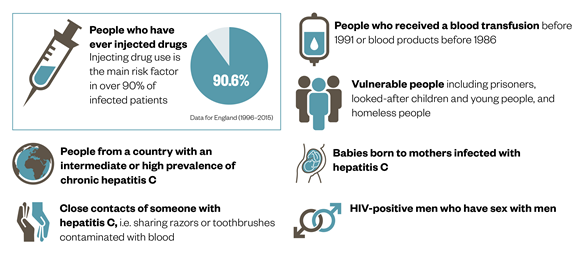Hepatitis C Treatment in Wiesbaden
Search and Compare the Best Clinics and Doctors at the Lowest Prices for Hepatitis C Treatment in Wiesbaden

Find the best clinics for Hepatitis C Treatment in Wiesbaden
No pricing info available
Turkey offers the best prices Worldwide
Price: $ 22,731
From 2 verified reviews
Büsra Erdogan, 10 August 2019
We were at 19h tonight at the Children's Hospital are just 23h back home, without my child could be treated for 9 months with 39.5 degrees Fever. It simply can not be that there is a single doctor in the emergency service for all of Wiesbaden and the children's hospital is full of chatter. There were 3 patients with the ambulance, in the waiting room were min. 10 more were waiting, treatment rooms all full, but wait in the rooms already 2 hours, is the normal? It was said there is support to a senior physician who did not come because he had to emergency surgery. But hello, are there no doctors anymore or what's up? Why save on staff when the need is so great? Where do we live, this is no longer the case in this country!
HELIOS DKD Hospital Wiesbaden, located in Aukammallee, Wiesbaden, Germany offers patients Hepatitis C Treatment procedures among its total of 156 available procedures, across 22 different specialties. Currently, there's no pricing information for Hepatitis C Treatment procedures at HELIOS DKD Hospital Wiesbaden, as all prices are available on request only. There are many specialists available at the Hospital, with 7 in total, and they are not accredited by any recognized accreditations institutes
WHY US?
At Medijump, we're making medical easy. You can search, compare, discuss, and book your medical all in one place. We open the door to the best medical providers worldwide, saving you time and energy along the way, and it's all for FREE, no hidden fees, and no price markups guaranteed. So what are you waiting for?

Free

Best Price

Widest Selection

Risk-Free
What you need to know about Hepatitis C Treatment in Wiesbaden

Hepatitis C is a viral infection that can cause liver inflammation and lead to serious liver damage. If you have hepatitis C, your doctor will examine your specific condition and make a treatment plan based on the type of the hepatitis C (genotypes), your general condition, and how much liver scarring (cirrhosis) you have.
What does a Hepatitis C Treatment Procedure Involve?
The main treatment options for hepatitis C are antiviral medication and liver transplantation. Antiviral medication is used to clear the virus from your body in at least 8 to 12 weeks. If you have developed a more serious complication, then liver transplantation can be an option. During liver transplantation, you are given a general anesthetic, and then your doctor removes the damaged liver and replaces it with a healthy liver, either from a deceased donor or a living donor.
How Long Should I Stay in Wiesbaden for a Hepatitis C Treatment Procedure?
If your doctor gives you antiviral medication, you may need to stay in Wiesbaden for a few weeks as your doctor needs to monitor how your body is responding to the medication. If you undergo surgery, you are required to spend 5 to 10 days in the hospital and stay in the country for 10 to 14 more days after you are discharged from the hospital.
What's the Recovery Time for Hepatitis C Treatment Procedures in Wiesbaden?
The recovery time depends on which treatment you underwent. With antiviral medication, you should be able to get back to most of your normal routine within a couple of days or as soon as you do not experience any symptoms or side effects from the medication. With a liver transplant, the full recovery period can take around six months, but you should be able to return to work within 12 weeks.
What sort of Aftercare is Required for Hepatitis C Treatment Procedures in Wiesbaden?
Making healthy lifestyle changes is very important after your treatment, such as following a healthy and balanced diet plan and regular exercise. Treatment with antiviral medication requires regular follow-up checkups to monitor your condition and progress. With liver transplantation, you also need regular checkup and you may need to take medication for a longer period of time.
What's the Success Rate of Hepatitis C Treatment Procedures in Wiesbaden?
Antiviral medicine is a safe and effective treatment for hepatitis C, with around 90% of patients with the condition are cured. Liver transplant is generally safe and approximately 70% of patients who undergo the procedure can live for ten years or longer. Both have some side effects and risks, such as depression, anxiety, skin irritation, insomnia, anorexia, tiredness, hair loss, aggressive behavior, bile duct complications, blood clots, bleeding, failure or rejection of donated liver, infection, mental confusion, and seizures
Are there Alternatives to Hepatitis C Treatment Procedures in Wiesbaden?
You will need antiviral medication to treat hepatitis C, but if the infection is diagnosed in the early stages, you may not need treatment immediately. However, you still need to make lifestyle adjustments. Your doctor will have several blood tests to see if your body fights off the virus, if the infection does not continue, you usually do not need treatment.
What Should You Expect Before and After the Procedure
When you have hepatitis C, the virus can damage your liver and you may experience symptoms, such as fatigue, bruising easily, bleeding easily, jaundice, weight loss, dark-colored urine, and more. After treatment, you may be cured and will not experience any of these symptoms anymore.
Whilst the information presented here has been accurately sourced and verified by a medical professional for its accuracy, it is still advised to consult with your doctor before pursuing a medical treatment at one of the listed medical providers
No Time?
Tell us what you're looking for and we'll reachout to the top clinics all at once
Enquire Now

Popular Procedures in Wiesbaden
Prices Start From $50

Prices Start From $35,013

Prices Start From $39

Recommended Medical Centers in Wiesbaden for Hepatitis C Treatment

- Interpreter services
- Translation service
- Religious facilities
- Medical records transfer
- Medical travel insurance
- Health insurance coordination
- TV in the room
- Safe in the room
- Phone in the room
- Private rooms for patients available

- Interpreter services
- Translation service
- Religious facilities
- Medical records transfer
- Medical travel insurance
- Health insurance coordination
- TV in the room
- Safe in the room
- Phone in the room
- Private rooms for patients available

- Interpreter services
- Translation service
- Religious facilities
- Medical records transfer
- Medical travel insurance
- Health insurance coordination
- TV in the room
- Safe in the room
- Phone in the room
- Private rooms for patients available

- Interpreter services
- Translation service
- Religious facilities
- Medical records transfer
- Medical travel insurance
- Health insurance coordination
- TV in the room
- Safe in the room
- Phone in the room
- Private rooms for patients available

- Interpreter services
- Translation service
- Religious facilities
- Medical records transfer
- Medical travel insurance
- Health insurance coordination
- TV in the room
- Safe in the room
- Phone in the room
- Private rooms for patients available

- Interpreter services
- Translation service
- Religious facilities
- Medical records transfer
- Medical travel insurance
- Health insurance coordination
- TV in the room
- Safe in the room
- Phone in the room
- Private rooms for patients available

- Interpreter services
- Translation service
- Religious facilities
- Medical records transfer
- Medical travel insurance
- Health insurance coordination
- TV in the room
- Safe in the room
- Phone in the room
- Private rooms for patients available

- Interpreter services
- Translation service
- Religious facilities
- Medical records transfer
- Medical travel insurance
- Health insurance coordination
- TV in the room
- Safe in the room
- Phone in the room
- Private rooms for patients available

- Interpreter services
- Translation service
- Religious facilities
- Medical records transfer
- Medical travel insurance
- Health insurance coordination
- TV in the room
- Safe in the room
- Phone in the room
- Private rooms for patients available

- Interpreter services
- Translation service
- Religious facilities
- Medical records transfer
- Medical travel insurance
- Health insurance coordination
- TV in the room
- Safe in the room
- Phone in the room
- Private rooms for patients available
Hepatitis C Treatment in and around Wiesbaden
Popular Searches
- Plastic Surgery in Thailand
- Dental Implants in Thailand
- Hair Transplant in Thailand
- Breast Augmentation Thailand
- Gastric Sleeve in Thailand
- Gender Reassignment Surgery in Thailand
- Laser Hair Removal in Bangkok
- Botox in Bangkok
- Dermatology in Bangkok
- Breast Augmentation in Bangkok
- Coolsculpting in Bangkok
- Veneers in Turkey
- Hair Transplant in Turkey
- Rhinoplasty in Turkey
- Stem Cell Therapy in Mexico
- Rhinoplasty in Mexico
- Liposuction in Mexico
- Coolsculpting in Tijuana
- Rhinoplasty in Korea
- Scar Removal in Korea
- Gastric Sleeve in Turkey
- Bone Marrow Transplant in India
- Invisalign in Malaysia
- Plastic Surgery in the Dominican Republic
- Tummy Tuck in the Dominican Republic
- Plastic and Cosmetic Surgery in Poland
- Rhinoplasty in Poland
- Hair Implant in Poland
- Dental Implants in Poland
- IVF in Turkey

